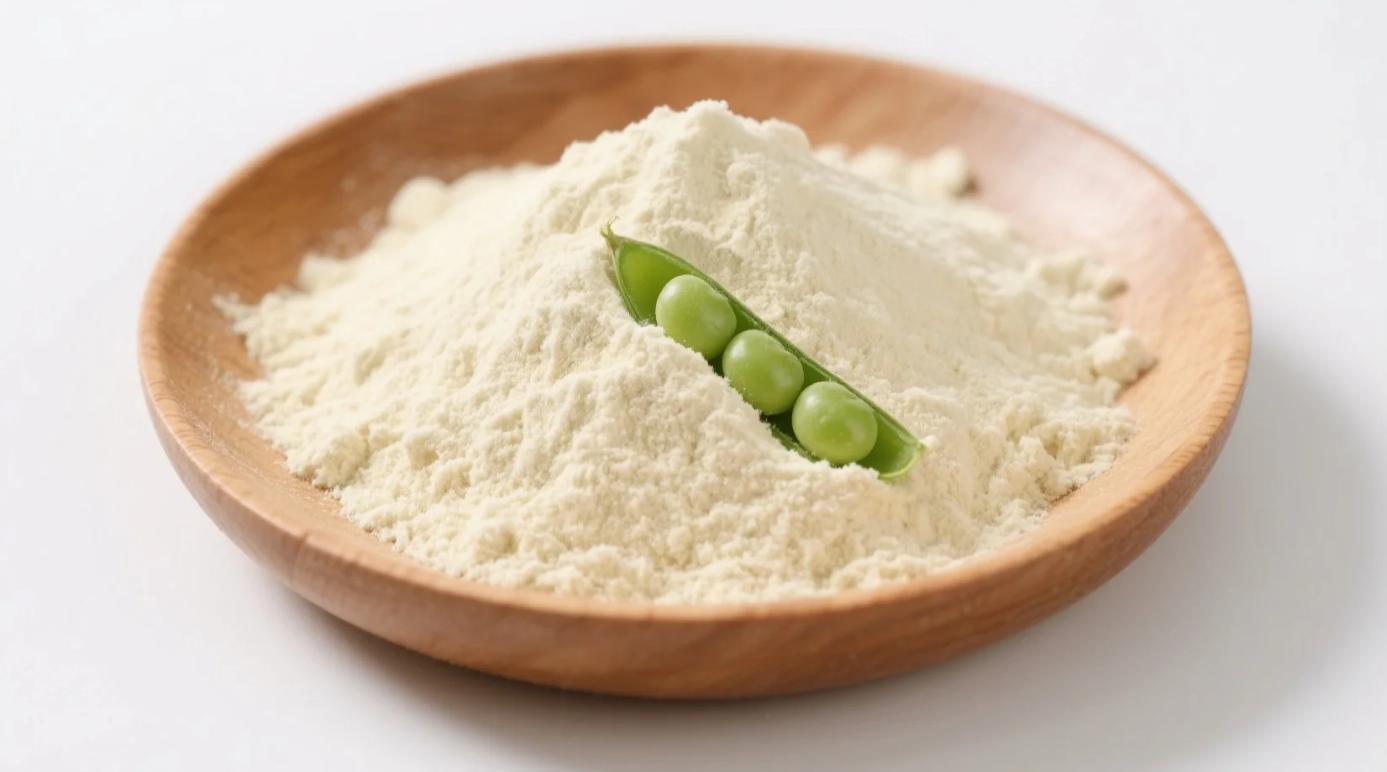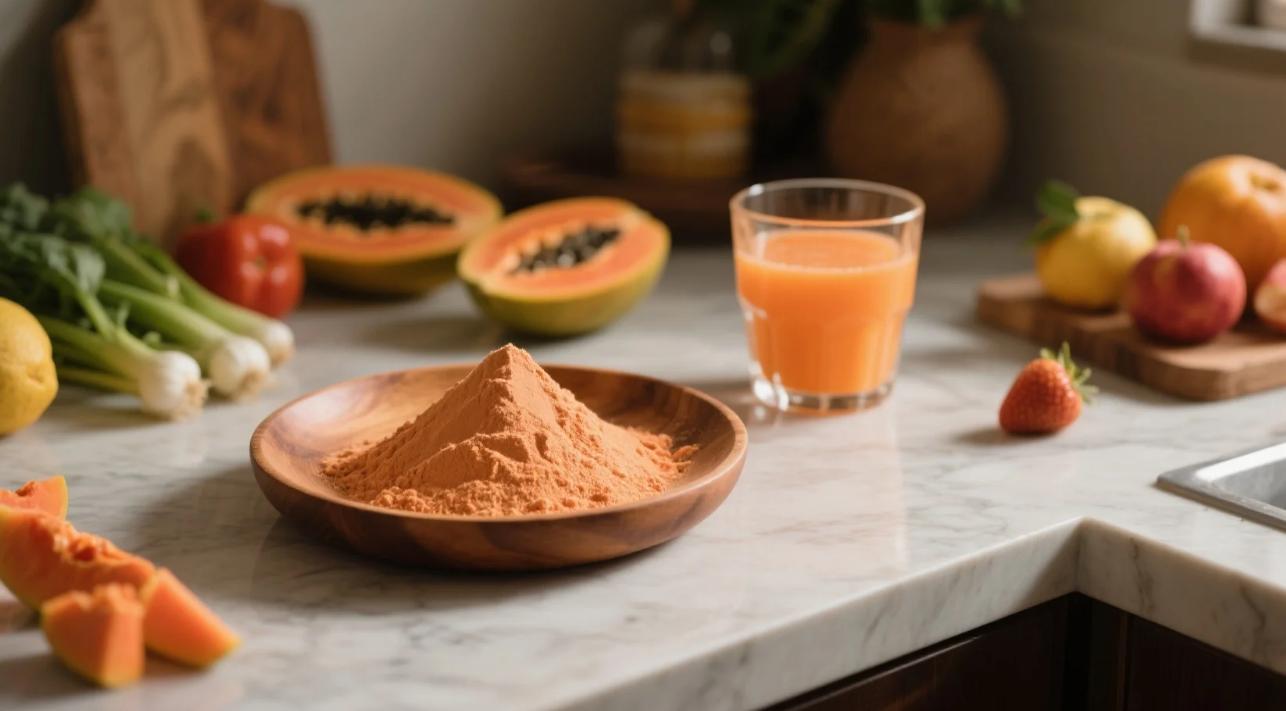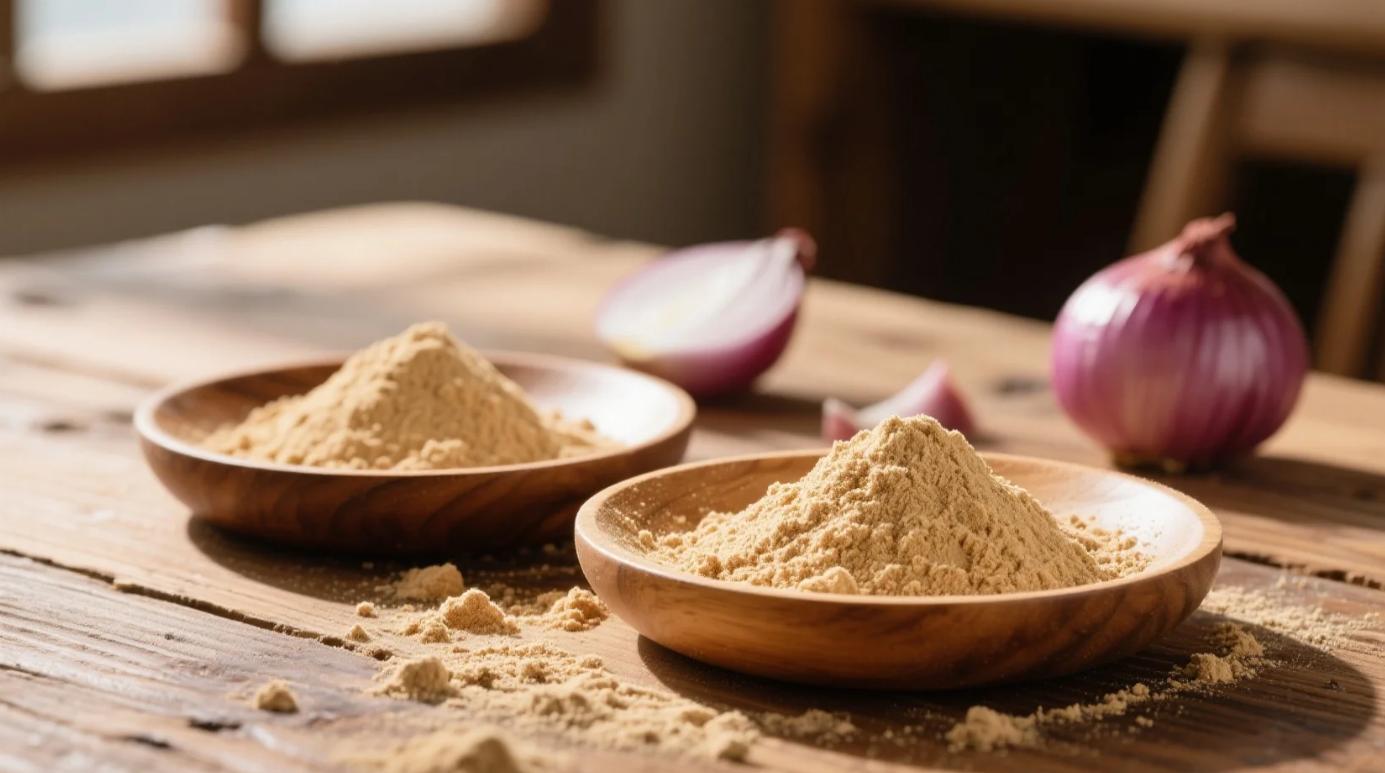Table of Contents
Move over, trendy superfoods—organic pea fiber is quietly revolutionizing the wellness game. Derived from the humble pea pod, this plant-based powerhouse isn’t just a byproduct; it’s a nutrient-dense, gut-loving marvel. Here’s why certified organic pea fiber deserves a prime spot in your pantry and daily routine.
6 Science-Backed Benefits of Organic Pea Fiber
1. Gut Health MVP
- Prebiotic Power: Feeds beneficial gut bacteria (like Bifidobacteria), reducing bloating and IBS symptoms.
- Dual Fiber Action: Combines soluble and insoluble fiber for regularity and microbiome balance.
2. Blood Sugar Stabilizer
Soluble fiber slows glucose absorption, helping manage diabetes and curb sugar crashes. A 2022 study linked pea fiber to a 15% post-meal glucose reduction.
3. Weight Management Wonder
Expands in the stomach, promoting satiety. Adding 10g to meals can reduce calorie intake by 12%, per clinical trials.
4. Heart Protector
- Lowers LDL: Binds to bile acids, forcing the liver to use cholesterol to make more.
- Reduces Blood Pressure: High potassium content (4% DV per serving) relaxes blood vessels.
5. Detox Dynamo
Binds to toxins like heavy metals and estrogen metabolites, aiding liver detox pathways.
6. Allergy-Friendly & Versatile
- Gluten-free, nut-free, soy-free—safe for sensitive diets.
- Neutral taste blends seamlessly into smoothies, soups, and baked goods.
Organic vs. Conventional Pea Fiber
| Factor | Organic Pea Fiber | Conventional Pea Fiber |
|---|---|---|
| Pesticides | Zero glyphosate or neonicotinoids | Risk of chemical residues |
| Processing | Cold-milled, no hexane | Often chemically extracted |
| Sustainability | Regenerates soil nitrogen | Linked to monocropping erosion |
| Nutrition | Higher polyphenol retention | Nutrient loss from harsh processing |
How to Use Organic Pea Fiber Daily
- Smoothie Thickener: Add 1–2 tsp to boost fiber without altering flavor.
- Baking Buddy: Replace 15% flour in bread or muffins for a gluten-free lift.
- Soups & Sauces: Stir into tomato sauce or chili for creaminess.
- Overnight Oats: Mix with chia seeds and almond milk for gut-friendly breakfasts.
Why “Organic” Matters for Pea Fiber
Non-organic pea crops are often sprayed with glyphosate (linked to microbiome disruption). Certified organic pea fiber guarantees:
✅ No synthetic chemicals
✅ Non-GMO & vegan
✅ Carbon-negative footprint (peas enrich soil, reducing fertilizer needs)
Who Should Try It?
- Plant-Based Eaters: Compensate for fiber gaps in vegan/vegetarian diets.
- Keto/Paleo Folks: Low-net-carb (4g per serving) fits macros.
- Eco-Conscious Consumers: Peas use 80% less water than almond farming.
- Seniors: Gentle on digestion, supports age-related gut issues.
FAQs
Q: Will it cause bloating?
A: Start with ½ tsp/day and hydrate well. Most adjust within a week.
Q: Safe during pregnancy?
A: Yes! Its iron (6% DV) and folate support maternal health.
Q: Shelf life?
A: 3+ years in airtight containers—no refrigeration needed.
Q: Kid-friendly?
A: Mix into pancakes or yogurt; they’ll never notice!
The Verdict
Organic pea fiber isn’t just a dietary add-on—it’s a daily essential for gut resilience, metabolic balance, and sustainable wellness. With science-backed benefits and unmatched versatility, it’s time to rethink what fiber can do.
Ready to Fuel Your Fiber Revolution?
Embrace certified organic pea fiber—where simplicity meets profound health, and every spoonful nourishes your body and the planet.
Gut health never tasted so effortless.
Recommended Product
Organic Pea Fiber
A pure, functional dietary fiber sourced from organic peas, ideal for boosting fiber content and…


